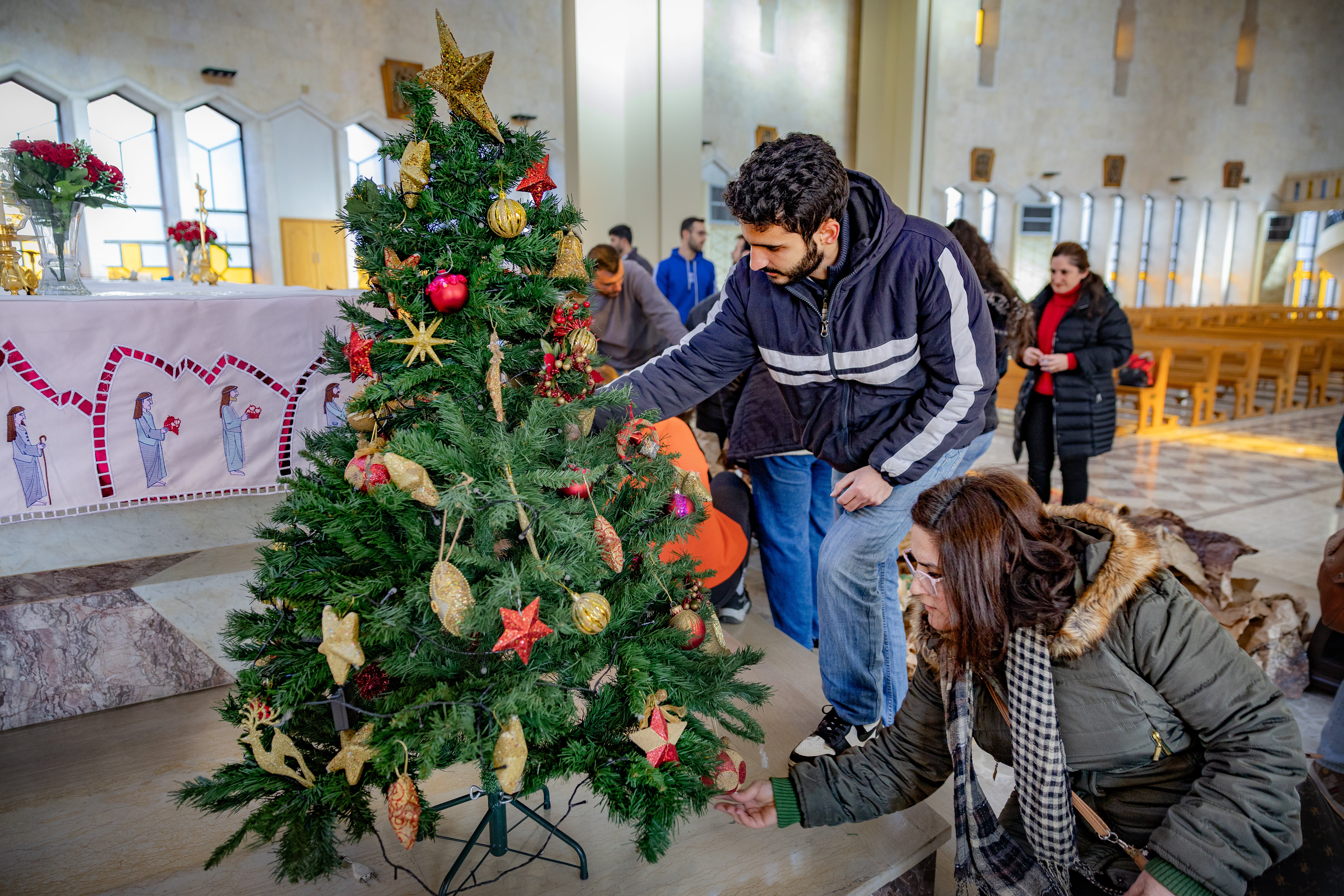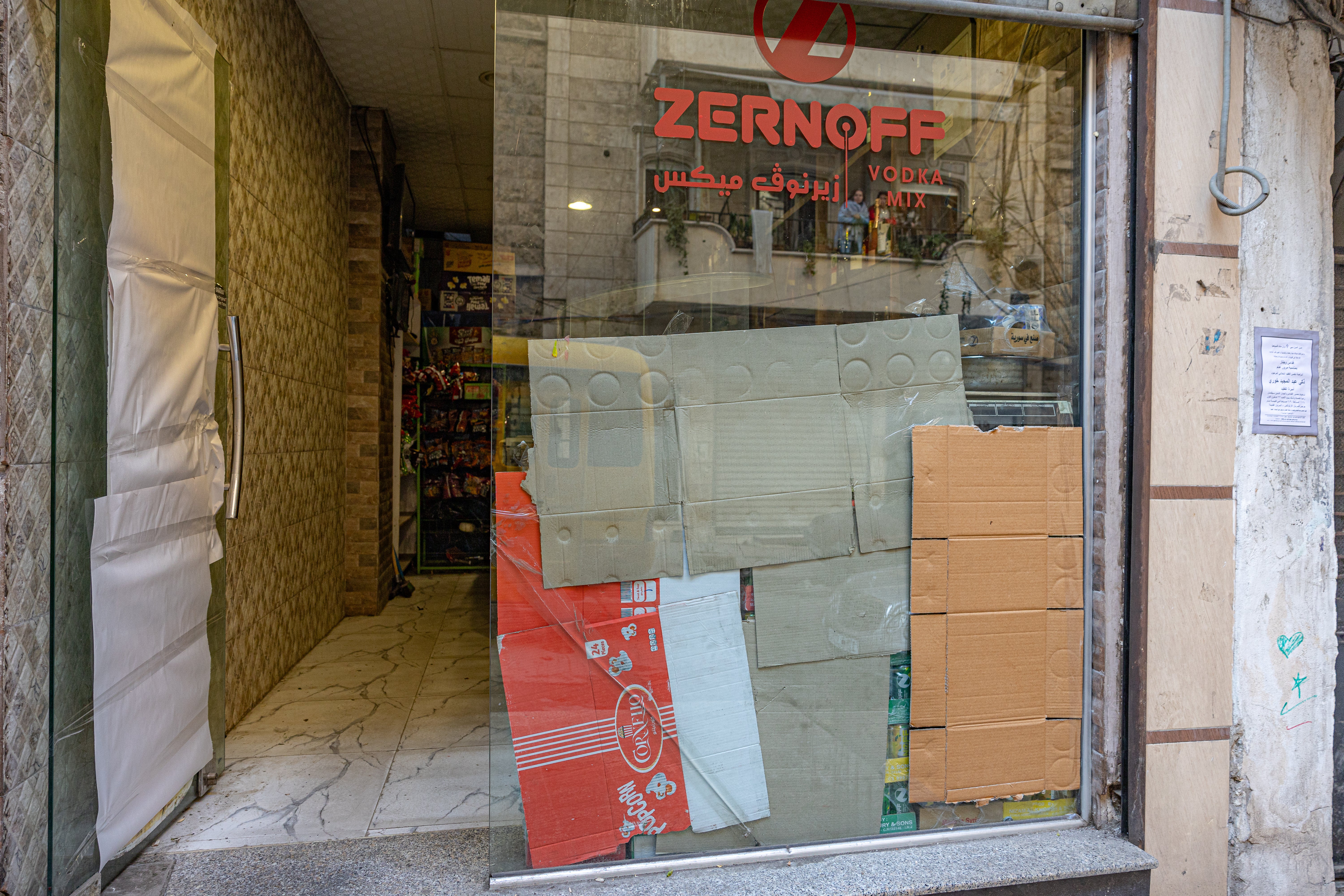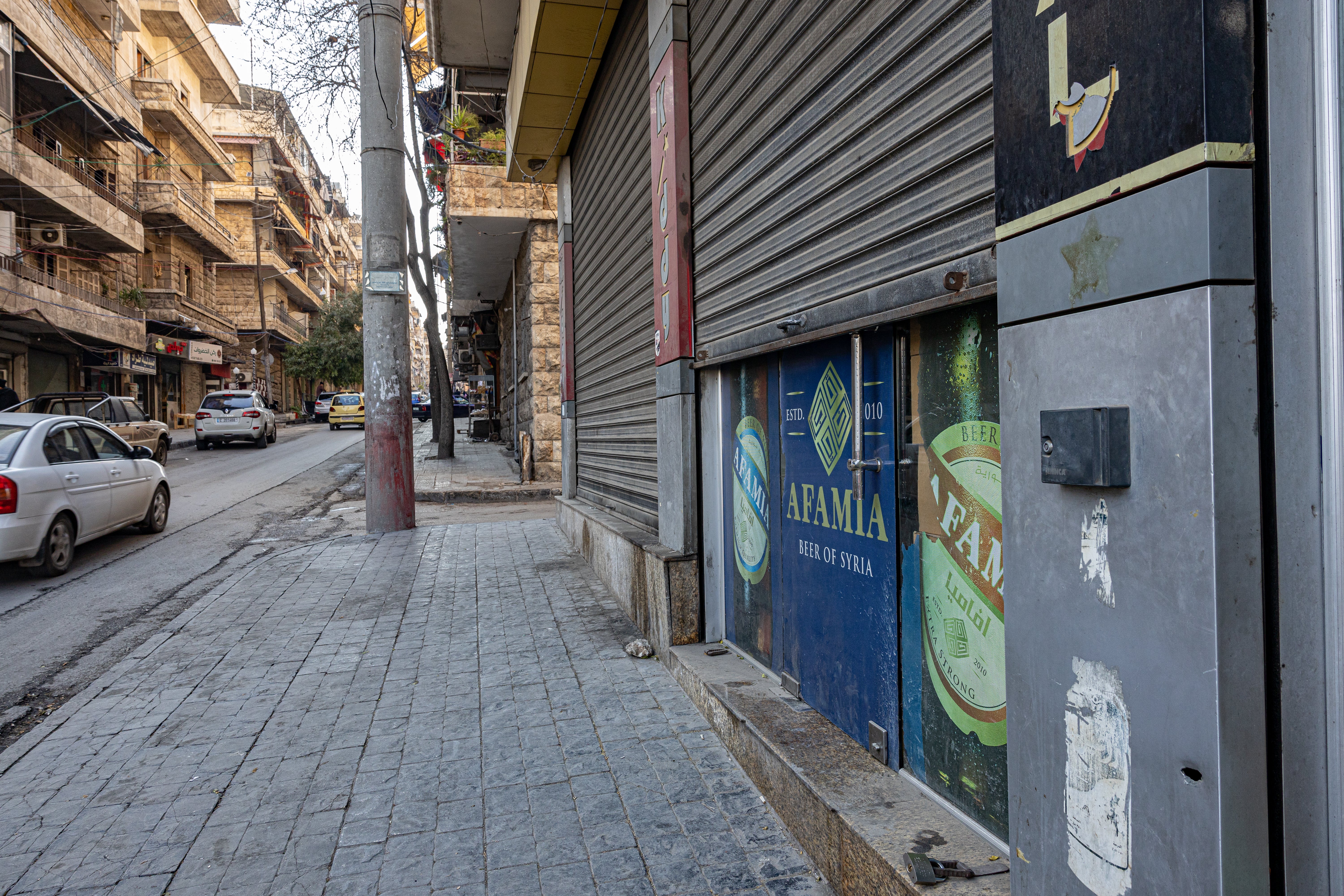Christians in Aleppo are celebrating Christmas – but fear for their future
As Syria marks the overthrow of the Assad regime, Bel Trew visits Aleppo, where Christian residents are beset by uncertainty. She speaks to families worried about life under a new Islamist-led administration
Your support helps us to tell the story
From reproductive rights to climate change to Big Tech, The Independent is on the ground when the story is developing. Whether it's investigating the financials of Elon Musk's pro-Trump PAC or producing our latest documentary, 'The A Word', which shines a light on the American women fighting for reproductive rights, we know how important it is to parse out the facts from the messaging.
At such a critical moment in US history, we need reporters on the ground. Your donation allows us to keep sending journalists to speak to both sides of the story.
The Independent is trusted by Americans across the entire political spectrum. And unlike many other quality news outlets, we choose not to lock Americans out of our reporting and analysis with paywalls. We believe quality journalism should be available to everyone, paid for by those who can afford it.
Your support makes all the difference.For the first time since the stunning overthrow of Bashar al-Assad two weeks ago, Shoukri, a Christian man in Aleppo, is tentatively reopening his shop.
This street, in the Christian heartland of Syria’s second city, is usually packed with bustling drink stores selling everything from French wine to tiny bottles of Jägermeister. It is so well known it is nicknamed “Alcohol Alley” and Christmas is the busiest time of year.
But all the shopkeepers shuttered their stores in the chaotic but jubilant aftermath of the stunning end of 50 years of brutal Assad family rule. Videos appeared online showing what looked like rebel fighters tearing down a nearby Christmas tree in Aleppo and trashing the alcohol shelves of the duty-free sections at Aleppo and Damascus international airports.
Shoukri says that armed men – from an unknown group – have since appeared here on multiple occasions, warning them to hide any drink and even to close. For the Christian store owners, they say it is not really about alcohol but what these restrictions signify about their wider personal and religious freedoms.
“They came to this street and said that all shop owners should remove signs of alcohol, so we did that immediately,” Shoukri says as he opens his store, making sure to cover the glass frontage with cardboard so no one can see inside. “We ripped down our signs or covered the rest with black bags as well. Really, it is not about alcohol – but what it means for the future.”
Moussa, 55, who owns a shop nearby, explains that under the law of the old Assad regime, they had a right to open but now they are uncertain about what the new legal basis will be.
“There are nearly 400 families that work in this kind of trade, including Muslims. Christmas is near, so this a busy period, for us” he tells The Independent, looking worried.
“We are waiting for instructions – all shops in Aleppo are waiting for instructions about whether we can go ahead with this,” he adds.

Isral, 35, meanwhile, is too afraid to reopen his shop. Instead, he has been shuttling Christmas orders to clients from the boot of his car “like I’m stealing from my own shop”, he says.
“Even if the new authorities give us permission to open publicly, no one can protect us. No one can guarantee that individuals won’t take matters into their own hands. There is no real government yet, no real law,” he adds.
Across Aleppo, churches are tentatively preparing for the Christmas period while celebrating the downfall of Assad, whose brutal rule was marked by enforced disappearances, mass detentions and slaughter. Thirteen years of bloody civil war has left heavy scars on this partially destroyed city, which, even in regime-controlled areas, is struggling with water, electricity, and bread supplies.
The Christian population here has been hit hard by emigration during the civil war. Of the approximately 250,000 Christians who lived in Aleppo before 2011, local Christian organisations tell The Independent only 20,000 remain. All appear happy to see Assad go.
But amid the celebration and jubilation is trepidation: what does the new administration mean for them?
Assad, a member of Syria’s Alawite minority, sought to publicly present his government as the champion and protector of secularism and the country’s minorities, although in reality, the ferocious and brutal crackdowns on freedoms extended to every part of society.

Part of the worry here is that his stunning ousting was led by Hayat Tahrir al-Sham (HTS), an Islamist faction that was once aligned with al-Qaeda but has spent the last few years distancing itself from its jihadi past. HTS and its leader Ahmed al-Sharaa – better known by his nom de guerre, Abu Mohamed al-Golani – hold terrorist designations in the West, something HTS is lobbying hard to remove. Sharaa has argued the designation is unfair and claims to oppose the killing of innocent people.
But that has done little to quell widespread apprehension among Syrians who worry that the new administration may gravitate towards hardline religious rule, marginalising minority communities and excluding women from public life. This concern has intensified since Obaida Arnout, a spokesperson for the newly installed transitional government, told a Lebanese channel last week that while Christian women would not be forced to wear an Islamic headscarf, women’s “biological and physiological nature” rendered them unfit for certain governmental jobs.
The comments prompted rallies in Damascus: several hundred Syrians gathered in the capital’s central Umayyad Square on Thursday to call for a democratic, secular state that ensures equal rights for women – the first such protests since the ouster of Assad.
There are also fears that HTS cannot control all the myriad armed factions or even its own ranks. And that there might be revenge attacks against Christian communities, who may be perceived to have supported the old regime. So far these have not happened.
At Aleppo’s Cathedral of Our Lady of Assumption, Archbishop Denys Antoine Chahda acknowledges there are concerns but insists the acting governor of Aleppo – HTS figure Abu Bilal Abdul Qader Tahan – has made a point of meeting several members of the clergy to affirm that the Christian population will be free to practice their religion and keep the doors of their churches open.

“Abu Bilal, along with his companions, assured us that they would preserve the previous way of life for Syrian citizens, especially for Christians. While there is some concern … they are reassuring us that there will be cooperation between us and them,” he tells The Independent from his office.
The Christmas tree in Aleppo destroyed in the viral video has been restored and decorated with a Syrian flag bearing the word “Freedom.” Young worshippers from Archbishop Chahda’s congregation are busy constructing a large nativity scene and decorating a Christmas tree downstairs. Other churches have decorated the area with Christmas lights as they do every year, and “no one has objected”, he adds.
“The church is open and is being prepared for Christmas prayers. We hope this Christmas will mark a new birth for Syria.”
Others are less positive.
Fouad Nakla, part of the Jesuit community in Aleppo, says that while HTS and its affiliated factions were making the right moves by approaching the Christian population, everything would remain unclear until the new laws and constitution were unveiled.
He is also worried about a situation where Christians are treated like a special “protected minority”, making them a target – something that the Assad regime exploited and weaponised, he adds.
“The most important thing right now is to let go of this term ‘minority’ – Druze, Christian, Kurd, Maronite. If we talk like this, the country will be divided. We have to fight for equality as citizens, not as a minority,” he tells The Independent from his office.
“We need to let go of this term of minorities – if we ask for protection, we will go back to a dictatorship. We are part of this country. We don’t even want official percentage representation; otherwise, we will be divided by sectarianism.”
We need to let go of this term ‘minorities’ – if we ask for protection, we will go back to a dictatorship
He said the biggest concern was if they adopted a system like Lebanon, where parliamentary seats are carved up and handed out to different sects and factions by set percentage rules.
“I need someone to represent me who will fight for my rights and is qualified. I will not just vote for someone because they are the Christian candidate,” he adds.
Christian families are bracing themselves for further changes.
Nervat, who lives in one of the most historic Christian neighbourhoods, says the situation is not stable, and Christians “do not know what our destination, our fate is yet”.
The 28-year-old beautician was stopped on her way to work, in an upper-class neighbourhood the day before we speak, by a rebel who told her she needed to cover her hair. “I didn’t respond; I didn’t want to have any reaction,” she says.
“At least if we cannot move forward, let us not go backwards,” she adds.
Shoukri says his wife was also told to put on a headscarf by one of the rebels – while others told restaurant owners alcohol would only be permitted in internal rooms. A few days after The Independent visit, fighters again turned up on the street and ordered the stores to close.
“The issue is we just do not know – everything is unclear,” he says. “We are uncomfortable, the atmosphere is tense. We want to know if we can trust them.”

Join our commenting forum
Join thought-provoking conversations, follow other Independent readers and see their replies
Comments